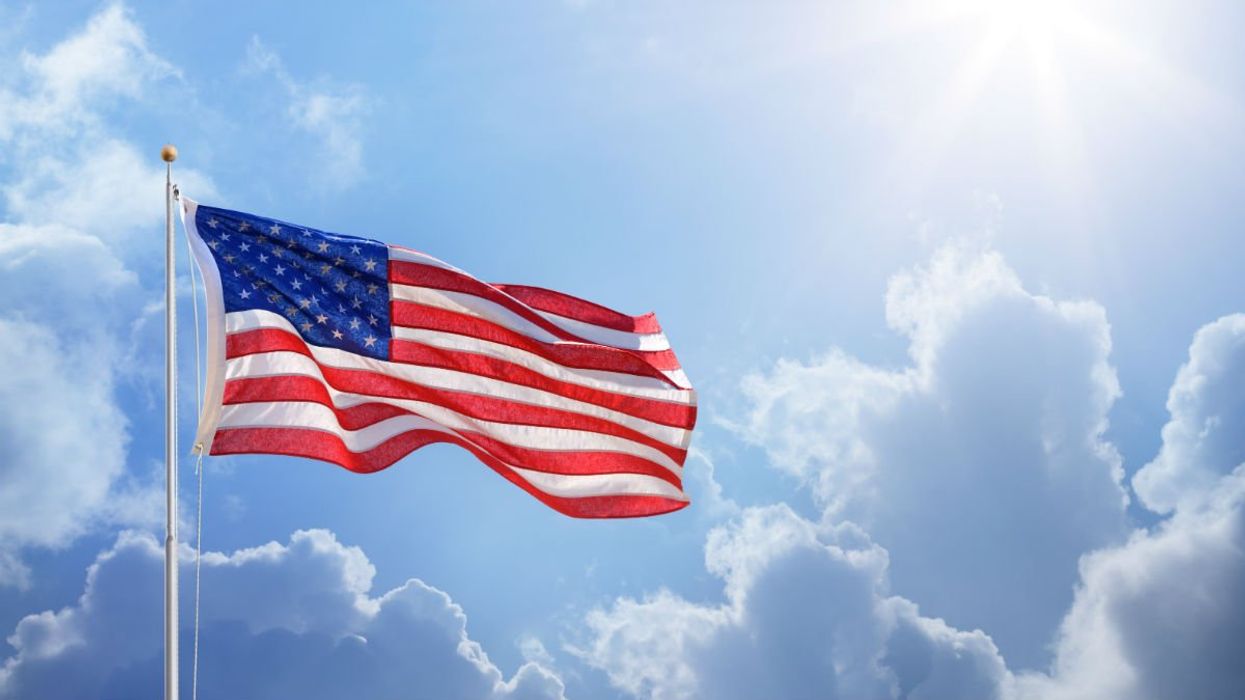
Romolo Tavani/Getty Images

This Veterans Day, we can all do our part to make the return home better for those who have borne America’s battles.
This week, nine former Navy SEALs, Army Green Berets, veterans, and athletes will literally descend on Sheridan, Wyoming, for an arduous, five-day ultramarathon consisting of a one-mile skydive, a 10-mile swim, and a 200-mile run.
No matter how you look at it, 211 miles is a long way. When you’re running, skydiving, and swimming the entire distance, it can become absolutely grueling. Even by the standards of those competing, special operators who have undergone military training and combat environments most people can’t even imagine, it will be tough. It will require all of us to reach down deep and find the part of ourselves that can fight to keep going when every muscle fiber is screaming at us to stop.
So why do it?
It isn’t just for the sense of accomplishment or for the workout. The reason we’re going to put ourselves through this is that there are too many of our fellow veterans, our fellow Americans, who are facing an even more daunting challenge on the insides of their minds and souls every single day, and far too many of them do not survive it.
Suicide is still way too common among U.S. veterans. Though the problem has received a great deal of attention over the years, the American Psychological Association notes that veterans are still much more likely to die from suicide than non-veterans. The most recent numbers from the U.S. Department of Veterans Affairs reported 6,146 veteran suicides in 2020.
And those stark numbers may not be the worst of it. According to analysis from America’s Warrior Partnership, in a joint study with the University of Alabama and Duke University, the actual numbers may be double what the federal numbers show — maybe as high as 44 veteran suicides per day in the United States.
The fact is that decades of ill-defined wars, multiple deployments, and combat engagements across the globe have taken their toll on America’s warriors. Some decreases in the suicide rate in recent years come as welcome news, but the numbers across the board remain too high. One preventable death is always too many, whether it’s on the battlefield or back home.
The first step to fixing a problem is acknowledging it and getting a clear view of its scope. That’s why awareness is key. But our awareness needs to go beyond just the public acknowledgment of grim statistics. Real awareness means a common cultural knowledge that there are folks — friends, neighbors, and coworkers — who might still be walking around with wounds every single day. It means all of us understanding that every time we as a people decide to use the awesome force of the United States military, it’s going to incur costs that cannot be measured with traditional metrics.
Until we raise that kind of awareness, it’s going to be really difficult to change anything about this problem in the long haul.
Once we have a clear visual layout of the problem, then we’re in a position to act. On the policy level, we need to shore up and square away the resources that we already have available to veterans in crisis. For example, a recent inspector general report condemned multiple failures in the VA’s Veteran Crisis Line’s handling of a suicidal veteran from Texas in 2021. Failures like this from those trusted to care for those who have risked everything for this country are simply unacceptable.
Looking forward, we as a society also need to continue working to understand and treat mental health conditions with the same urgency that keeps us researching and developing new and innovative means of physical health care. We have come light-years in the century since the term “shell shock” was first coined to describe the phenomenon of post-traumatic stress disorder.
Now, new breakthroughs are coming out all the time. One example is INVI MindHealth, which is using wearable technology to fill the current gaps in veterans’ mental health care. And until we achieve mission success in addressing this current epidemic of veteran suicide, there will always be a need for more research and more innovation.
Most immediately, there’s something we can all do to confront this problem this week.
No matter what you’re doing this Veterans Day — whether you’re at work, grilling out, or running an ultramarathon — please take some time to remember your friends, neighbors, and fellow Americans who are still suffering. Be the kind of friend, that neighbor, that coworker whom they know they can talk to.
We will never lose the need for people to fight to keep this country free, and we will never get rid of the costs that come along with combat. But we can all do our part to make the return home better for those who have borne the battle.
Eddie Gallagher
Jonathan Wilson